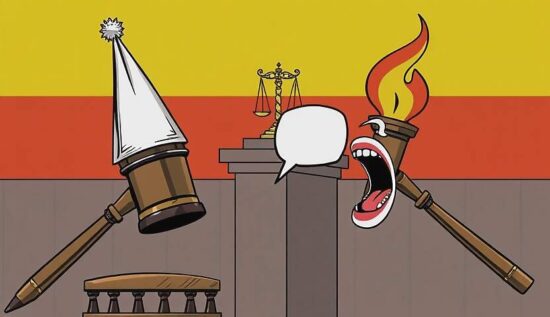The recent court ruling in Bamberg, Germany, has raised concerns about the limits of free speech in the country. The case involved a satirical image of the Interior Minister, Nancy Faeser, holding a sign that reads “I hate the freedom of opinion.” The image was published in a magazine and the editor, David Bendels, was subsequently charged with insult and sentenced to seven months of probation.
The court’s decision has been criticized for its perceived overreach and potential chilling effect on free speech. The image, while satirical, was intended to comment on the minister’s perceived disregard for the freedom of opinion, which is a fundamental right in Germany.
The case has sparked a debate about the limits of free speech in Germany, particularly in the context of political satire. The court’s ruling has been seen as an example of the need for a nuanced approach to free speech, one that balances the right to criticize public figures with the need to protect individuals from defamatory and hurtful speech.
In a recent statement, the German Federal Constitutional Court emphasized the importance of protecting the freedom of opinion, even when the opinions expressed are not necessarily rational or well-reasoned. The court noted that the freedom of opinion is a fundamental right that is essential to a democratic society and that it must be protected even in the face of criticism or ridicule.
The case of the satirical image of the Interior Minister has highlighted the need for a more thoughtful and nuanced approach to free speech in Germany. While the court’s ruling may have been intended to protect the minister’s reputation, it has also raised concerns about the potential chilling effect on free speech and the need for a more balanced approach to the protection of individual rights and the freedom of opinion.





